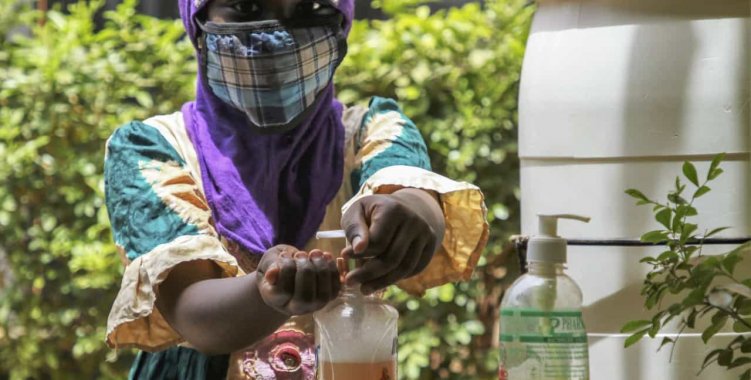According to the bulletin of the Centers for Disease Control and Prevention of the African Union (CDC Africa), in the last 24 hours the number of recorded deaths has risen from 487 to 535, with 10,692 confirmed infections.
The CDC Africa also registered 1,096 patients recovered from the infection.
The pandemic already affects 52 of Africa's 55 countries and territories, with four countries - South Africa, Algeria, Egypt and Morocco - concentrating more than half of the infections and deaths associated with the new coronavirus.
South Africa is the country with the most confirmed cases of the disease (1,749), recording 13 deaths.
Algeria (1,468 cases and 193 deaths), Egypt (1,450 cases and 94 deaths) and Morocco (1,184 cases and 90 deaths) are other countries with significant numbers.
In at least a dozen other countries, the number of confirmed cases is in the order of hundreds.
All Portuguese-speaking countries in Africa register cases of the disease, with Guinea-Bissau being the most affected, accounting for 33 people with infections by the new coronavirus.
Angola has 17 confirmed cases of covid-19, accounting for two deaths.
Mozambique has 10 reported cases of new coronavirus infection and Cape Verde has a total of seven cases of infection since the beginning of the pandemic, including one dead.
Sao Tome and Principe, the last Portuguese-speaking African country to detect cases of the disease in its territory, has four confirmed cases.
In Equatorial Guinea, which is part of the Community of Portuguese Speaking Countries, 16 positive cases of infection with the new coronavirus have been confirmed.
As the continent surpasses the 10,000 case barrier, World Health Organisation Director for Africa Matshidiso Moeti expressed concern about the rapid spread of the disease outside major African cities.
"Covid-19 has the potential not only to cause thousands of deaths, but also to trigger economic and social devastation. Its spread outside the big cities means opening a new front in the fight against this virus," he said.
According to Matshidiso Moeti, this new front "requires a decentralized response adapted to the local context".
"Communities need to be trained and provincial and local governments need to ensure that they have the means and knowledge to respond to the outbreak", he added.
For his part, the WHO Director for the Eastern Mediterranean, Ahmed Al-Mandhari, considered that Africa still has the opportunity to reduce and delay the transmission of the disease.
"All countries must accelerate and rapidly intensify a global response to the pandemic, including an appropriate combination of proven public health measures and physical distancing. As part of that process, Member States should aim to effectively control the outbreak, but prepare for the worst," he said.
"Early isolation of all cases, including light ones, is one of the main control measures, together with detection, treatment and contact tracing", he added.
He stressed the importance of having 'accurate and reliable' epidemiological data as one of the 'most important tools' to structure the response to the pandemic.
The new coronavirus, responsible for the covid-19 pandemic, has already infected some 1.4 million people worldwide, of whom over 80,000 have died.
Of the cases of infection, about 260,000 are considered cured.
After the outbreak in China in December, it spread around the world, leading the World Health Organisation (WHO) to declare a pandemic situation.







